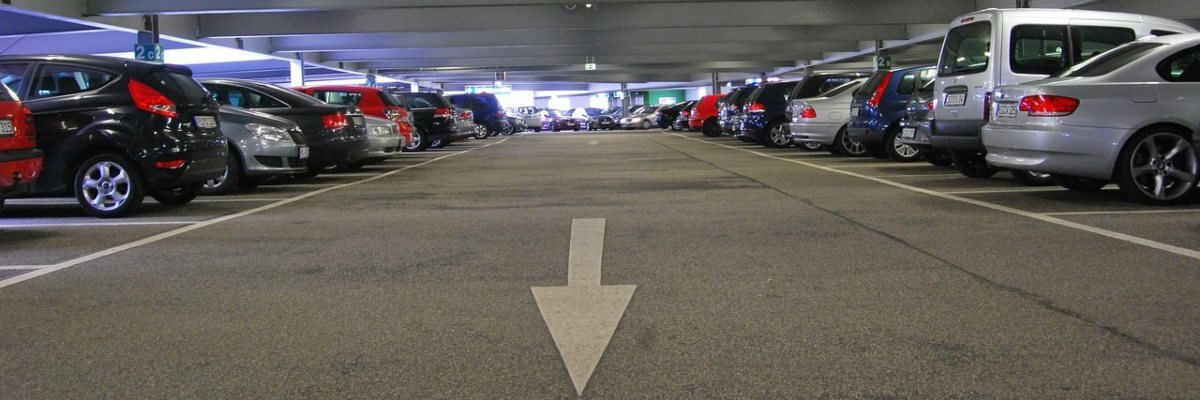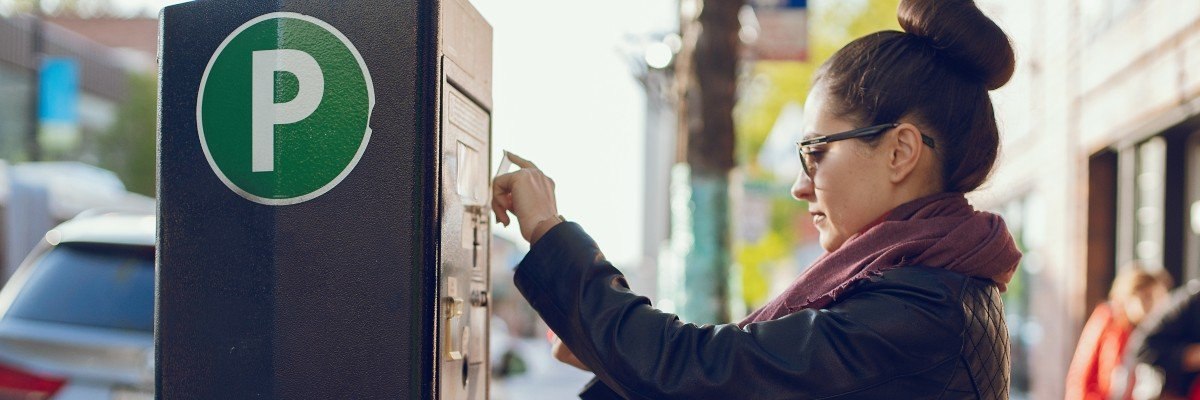Negotiating a multi-storey car park – A step-by-step guide
Parking is often cited as one of the most stressful aspects of driving. It’s undeniably frustrating when you’ve reached your destination, and you simply want to park up and get going, but instead, you are stuck trying to find a place to park.
Adding to the stress of trying to park is the multi-storey car park. On your driving lessons, you usually head to a supermarket or big store car park where there is plenty of space to practice your parking skills, but you don’t normally head to a multi-storey car park until after passing. This means when you negotiate a multi-storey car park for the first time, you won’t have your instructor there to offer guidance.
But it’s not just new drivers who struggle with multi-storey car parks, as they can also present an issue for the most-seasoned drivers with their sheer size and often maze-like quality.
To help reduce motoring stress, we’ve put together a step-by-step guide on how to park a car in a multi-storey car park.
Step One – Multi-storey car park barrier
The first thing you usually have to contend with when going to park in a multi-storey car park is the entrance/ticket barrier. In most cases, you need to drive up to the barrier, roll down your window, press a button on the machine and take the dispensed ticket. This triggers the barrier to raise, so you can then drive through. Sounds simple right?
The first problem is that the approach to the entrance barrier is usually narrow. This helps ensure that cars slow down enough when entering, however, this can make pulling up to the barrier trickier. Which is why it is important you take your time and approach the barrier slowly and with care.
You should try to position your car as close to the barrier as you can to make grabbing a ticket easier. Let’s face it, the only thing worse than having to hang out of the window to grab a ticket is having to physically get out of the vehicle to get a ticket. However, when pulling up close to the barrier, you need to make sure you don’t knock your wheels or tyres.
Many multi-storey car park entrances are on a ramp which can make the situation even more difficult. The best thing to do is take your time, make sure you apply the handbrake when you stop and find your biting point before releasing your handbrake and setting off. Many new cars now come with hill-hold assist systems which make this even easier.

Step Two – Navigating
You’ve made it through the barrier and are in the car park, now concentration is key. Multi-storey car parks often have one way systems, and these do not always follow normal road conventions, so it is important you stay alert and follow the signs. The good news is most large car parks are well marked with signage on both the floor and walls indicating which direction you should take to head up a level or to exit the car park.
The turnings can be quite tight in some car parks, so it is a good idea to take them wide to give yourself a bit more room. If you don’t get the angle right the first time, don’t worry, simply check your mirrors and once clear reverse a little and try again.
If you do accidentally take a wrong turn, try not to panic. Instead, stop when safe to do so and manoeuvre your way back into the flow of traffic using your indicators to show your intent. Most people will be sympathetic as it’s something we’ve all done. Plus as the traffic is travelling at a steady pace, it usually isn’t too hard to find a gap to whip round in.
If the car park is busy, a good way to save yourself some hassle is just to head straight up to the upper levels where it is usually quieter.
Step Three – Parking
Many of us will breathe a huge sigh of relief when we finally find that empty space, however, for some it can be the beginning of the stress. Cars have got bigger over the years so you may find in some multi-storey car parks, especially older ones, the spaces are quite tight. Therefore it is important you don’t feel under pressure to and go at your own pace.
You should decide which way you feel more confident parking, be it pulling in forwards or reversing into the car park space. Although it is worth bearing in mind, you will have to do the opposite to get out.
Parking sensors can be a great help when parking in multi-storey car parks where the grey on masse can make it difficult to judge quite how far you can pull into the car park space. If your car doesn’t have parking sensors they can be added, although it is best going to a manufacturer approved garage for this as they will make sure they are set up correctly.

Step Four – Make a note of where you have parked
You’ve parked up and are ready to head off, but don’t forget to make a note of where you have parked. Missing this step can cause you a headache in the long run and can result in you spending hours searching for your vehicle when you return.
Make a note of both the level and parking space number (if given) on your phone. If there is no parking space number, you could look out for a distinguishing feature you are parked near, like a particular advert. But bear in mind using a distinctive car is not a good idea, as you may find that the car has gone when you return to your car!
Step Five – Paying
You should check the payment signs before you head off, so you know how, when and roughly how much you will need to pay for parking. In most multi-storey car parks, you are issued with a ticket at the barrier, you then insert this into a pay machine, and the amount you owe is displayed on the monitor. Once you pay, the ticket is returned to you for you to insert into the exit barrier ticket machine to allow you out.
Most car parks now accept card payments meaning you don’t need to carry spare change, while some can even be paid through phone apps for extra convenience.

Multi-storey car park top tips
Go when it is quiet – plan your first visit when you know it will be quieter, like a weekday night. This will give you the chance to practice and make mistakes when far fewer cars are there to get in the way.
Give yourself plenty of time – another thing to remember is not to go when you are in a rush as this will only increase your stress if you do start to make mistakes.
Park further away from the main attraction – most people want to park as close as they can to the attraction, so on your first few visits, you are best heading higher up and further away from the main attractions, where more spaces will be free.
Don’t avoid it – like ripping a plaster, you are best just getting on with it. Once you’ve done it a few times, you’ll realise there really is nothing to worry about parking in a multi-storey car park.
Have you had any multi-storey car park nightmares? Or do you have any top tips to share? We’d love to hear from you via Facebook, Twitter or Instagram.
Blog Comments
To view, comment or reply to comments you must be logged into facebook
Other Articles
27 Mar 2024



